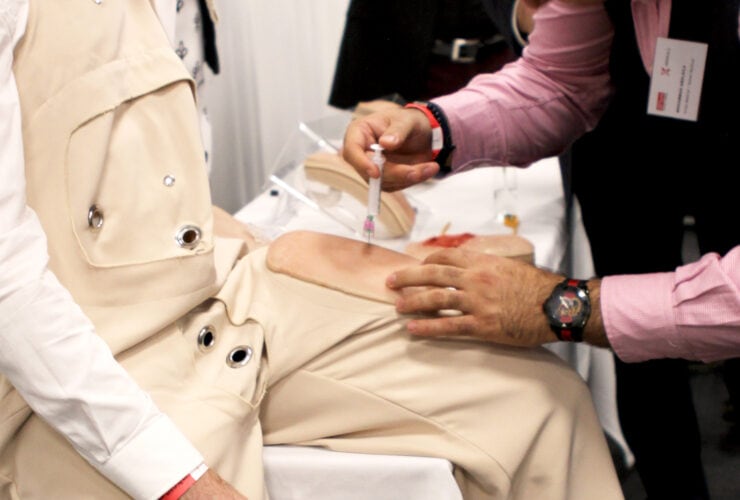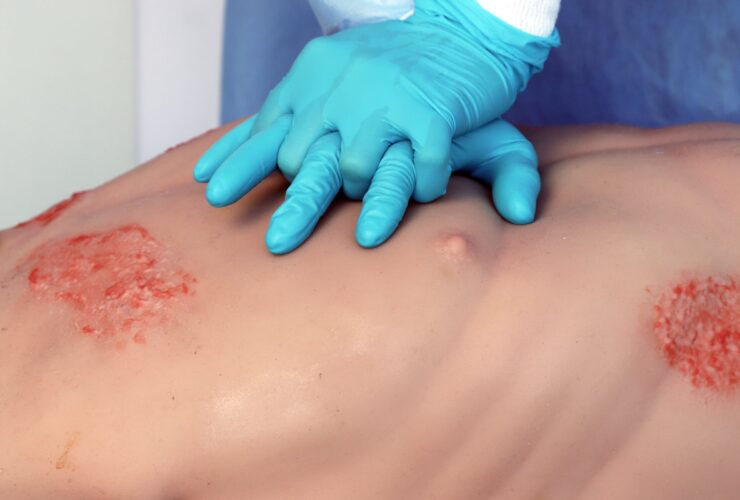What is the best way to teach procedural skills to medical students?
What are procedural skills in health care?
Procedural Skills are a complete set of specific physical skills that are required by a person or a team to accomplish their task. Procedures are an integrated part of medicine practicing1. The key aspect of having the competence of practical procedures is to deliver it efficiently and safely to patients2.
Helping students to develop and improve their procedural skills

Healthcare students are expected to reach proficiency in performing a wide range of procedures during their graduation time. However, the teaching of procedural skills required for clinical practice remains an ongoing challenge in healthcare education3.
In addition, the well-known and ancient paradox of medical training remains: patients are willing to accept trainee involvement in anamnesis and physical examination, but they are generally resistant to allow students to perform procedures on them4.
So, how can one acquire knowledge, experience, and confidence to perform invasive procedures in actual patients without compromising their safety?
In the last half of the twentieth century, many educational models were proposed for teaching and learning psychomotor skills3. And they all seem to agree on one point:
Repeated practice assists in the learner’s acquisition and retention of skills.
Using task trainers can allow a standardized teaching approach, regardless of the availability of patients or specific clinical cases for this purpose.
What are task trainers?
Task trainers are specialized models designed to help learners develop and practice a specific skill, filling the gap between theoretical and practical education in a controlled environment.
These training devices are valuable for building manual dexterity and creating muscle memories through repetitive training. In addition, allow continuous feedback from tutors and frequent debriefings, correcting errors in real-time.
There is no doubt that nothing can replace the actual patient encounter and the practice of the procedure in real life. Still, inanimate training can undoubtedly be an important learning step.

Benefits of using task trainers:
Freely practice without injury real patients
Controlled and safe environment
Repeated training: build manual dexterity and create muscle memories
Feedback and debriefing: correct errors in real-time
Discover our full range of clinical skills task trainers
From simple pads to practice suturing techniques to advanced and realistic human anatomy models that can even simulate a massive hemorrhage, MEDICAL-X offers multiple task trainers to assist you with your training purposes.
In addition to its usage in skill labs facilities and simulation centers, task trainers can also be combined with another teaching method often used in medical training: standardized patients5.
A hybrid training model can be performed using a standardized patient for history taking and physical examination, while procedures can be completed in a task trainer.
With that in mind, Medical-X also offers unique wearable trainers that can be safely used by actors, providing an embracing and real-life training experience.
MEDICAL-X’s mission is to provide cost-effective and efficient simulators to complement traditional education without risk to actual human patients, developing and improving the confidence and proficiency of healthcare professionals.
References
1. Ganesha, I. Gde Haryo, S. Ked, and Gede Made Cahya Trisna Pratama. “PROCEDURAL SKILL.”
2. Bould MD, Crabtree NA, Naik VN. Assesment of Procedural Skills in Anaesthesia. Oxford: BJA 2009. [cited 2016, September]. Available from: http://bja.oxfordjournals.org/content/early/2009/08/30/bja.aep241.full.pdf
+html
3. Burgess, A., van Diggele, C., Roberts, C. et al. Tips for teaching procedural skills. BMC Med Educ 20, 458 (2020).
4. Dehmer JJ, Amos KD, Farrell TM, Meyer AA, Newton WP, Meyers MO. Competence and confidence with basic procedural skills: the experience and opinions of fourth-year medical students at a single institution. Acad Med. 2013 May;88(5):682-7.
5. Singh M, Restivo A. Task Trainers in Procedural Skills Acquisition in Medical Simulation. [Updated 2021 May 9]. In: StatPearls [Internet]. Treasure Island (FL): StatPearls Publishing; 2021 Jan-.
Claudia Weltson Sarno, M.D.
author
Claudia Weltson Sarno, M.D. Originally from Brazil and with a specialty in Anesthesiology, Claudia Weltson has extensive medical knowledge of pharmacology, physiology, internal medicine, and medical devices such as patient monitors, ventilation machines, and more.




